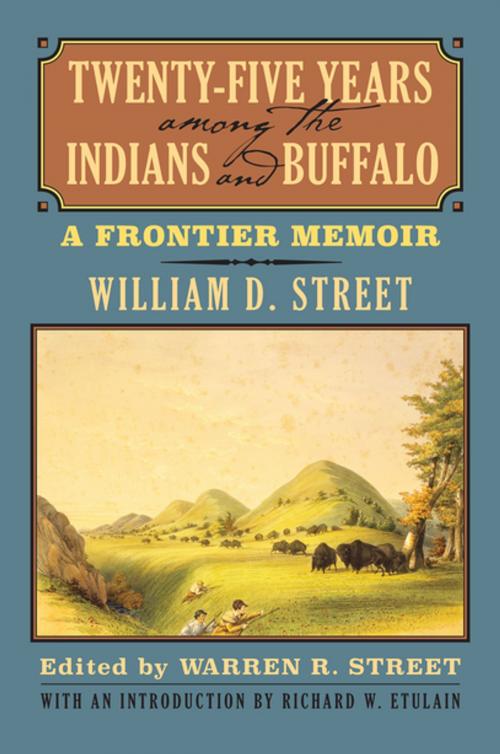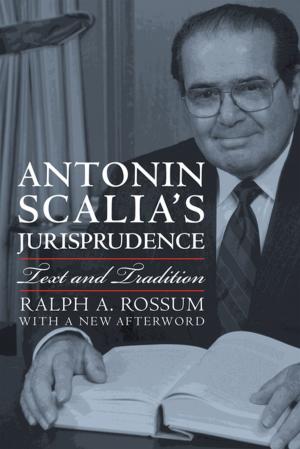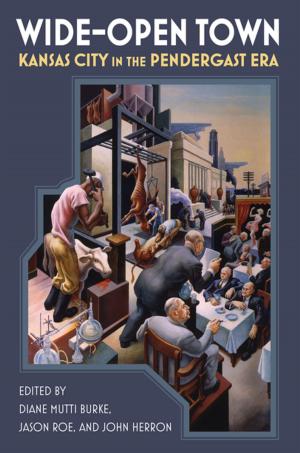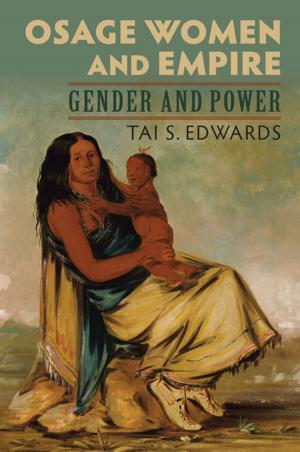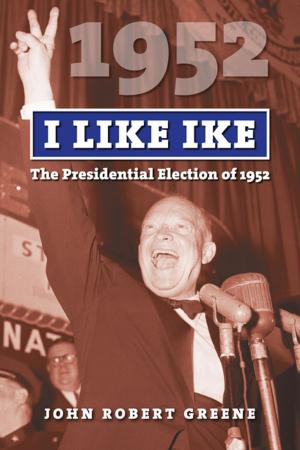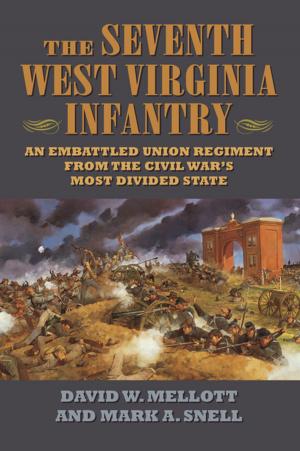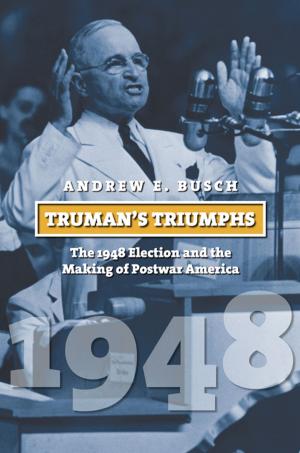Twenty-Five Years among the Indians and Buffalo
A Frontier Memoir
Nonfiction, History, Americas, United States, 19th Century, Biography & Memoir, Historical| Author: | William D. Street | ISBN: | 9780700621668 |
| Publisher: | University Press of Kansas | Publication: | December 2, 2015 |
| Imprint: | University Press of Kansas | Language: | English |
| Author: | William D. Street |
| ISBN: | 9780700621668 |
| Publisher: | University Press of Kansas |
| Publication: | December 2, 2015 |
| Imprint: | University Press of Kansas |
| Language: | English |
Nearing 60, William D. Street (1851-1911) sat down to write his memoir of frontier life. Street's early years on the plains of western Kansas were both ordinary and extraordinary; ordinary in what they reveal about the everyday life of so many who went out to the western frontier, extraordinary in their breadth and depth of historical event and impact. His tales of life as a teamster, cavalryman, town developer, trapper, buffalo hunter, military scout, and cowboy put us squarely in the middle of such storied events as Sheridan's 1868-1869 winter campaign on the southern Plains and the Cheyenne Exodus of 1878. They take us trapping beaver and hunting buffalo for hides and meat, and driving cattle on the Great Western Cattle Trail. They give us insight into his evolving understanding of his multi-decade relationship with the Lakota. And they give us a front-row seat at the founding and development of Jewell and Gaylord, Kansas, and a firsthand look at the formation of Jewell's "Buffalo Militia."
In later life Street rose to prominence as a newspaper publisher, state legislator, and regent of the Kansas State Agricultural College. At the time of his death—noted in the New York Times—he was still at work on his memoir. Handed down through his family over the past century and faithfully transcribed here, Street's story of frontier life is as rich in history as it is in character, giving us a sense of what it was to be not just a witness to, but a player in, the drama of the plains as it unfolded in the late nineteenth century. Edited by Street's great-grandson, with an introduction by Richard Etulain, a leading scholar of the West, this memoir is history as it was lived, recalled in sharp detail and recounted in engaging prose, for the ages.
Nearing 60, William D. Street (1851-1911) sat down to write his memoir of frontier life. Street's early years on the plains of western Kansas were both ordinary and extraordinary; ordinary in what they reveal about the everyday life of so many who went out to the western frontier, extraordinary in their breadth and depth of historical event and impact. His tales of life as a teamster, cavalryman, town developer, trapper, buffalo hunter, military scout, and cowboy put us squarely in the middle of such storied events as Sheridan's 1868-1869 winter campaign on the southern Plains and the Cheyenne Exodus of 1878. They take us trapping beaver and hunting buffalo for hides and meat, and driving cattle on the Great Western Cattle Trail. They give us insight into his evolving understanding of his multi-decade relationship with the Lakota. And they give us a front-row seat at the founding and development of Jewell and Gaylord, Kansas, and a firsthand look at the formation of Jewell's "Buffalo Militia."
In later life Street rose to prominence as a newspaper publisher, state legislator, and regent of the Kansas State Agricultural College. At the time of his death—noted in the New York Times—he was still at work on his memoir. Handed down through his family over the past century and faithfully transcribed here, Street's story of frontier life is as rich in history as it is in character, giving us a sense of what it was to be not just a witness to, but a player in, the drama of the plains as it unfolded in the late nineteenth century. Edited by Street's great-grandson, with an introduction by Richard Etulain, a leading scholar of the West, this memoir is history as it was lived, recalled in sharp detail and recounted in engaging prose, for the ages.
